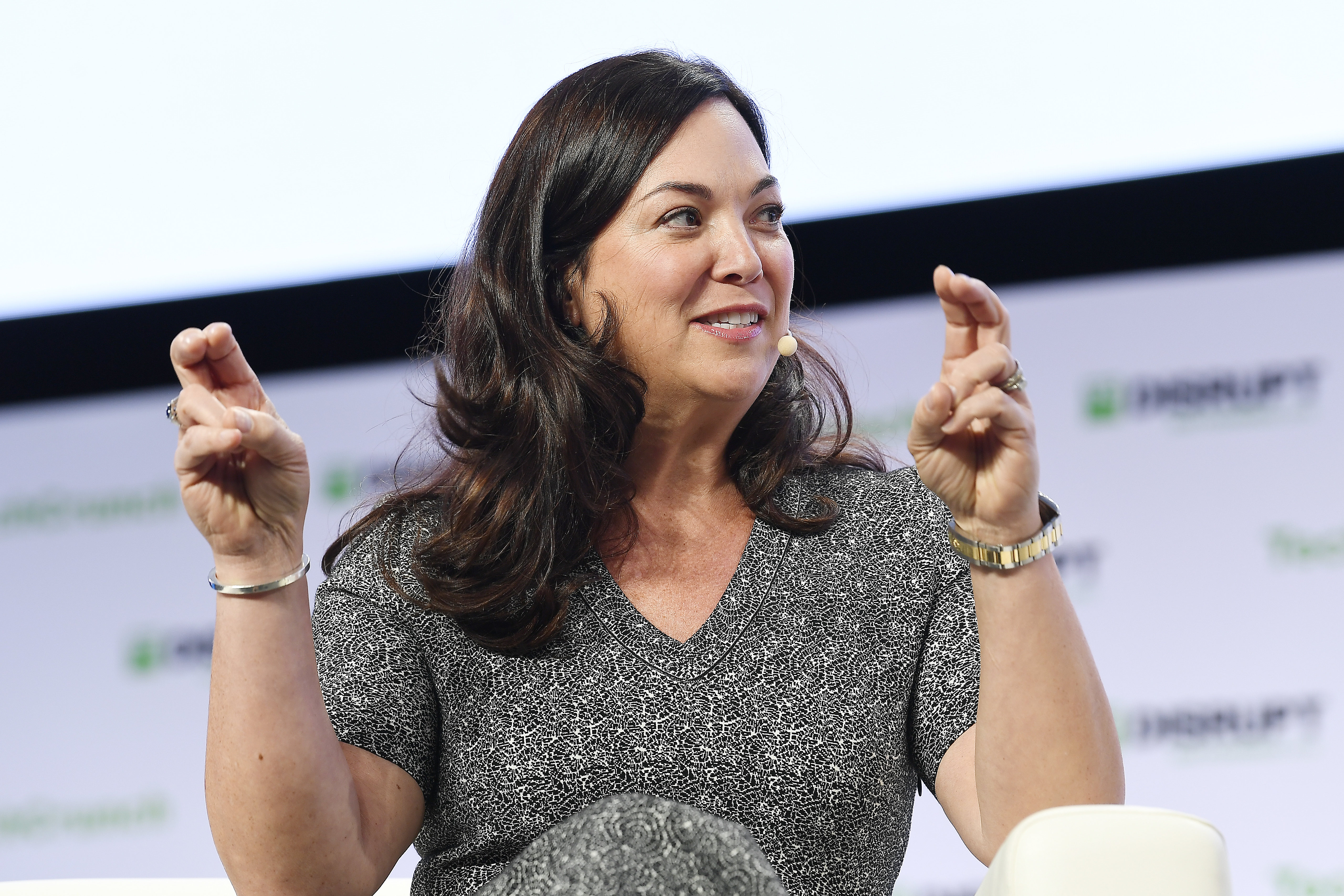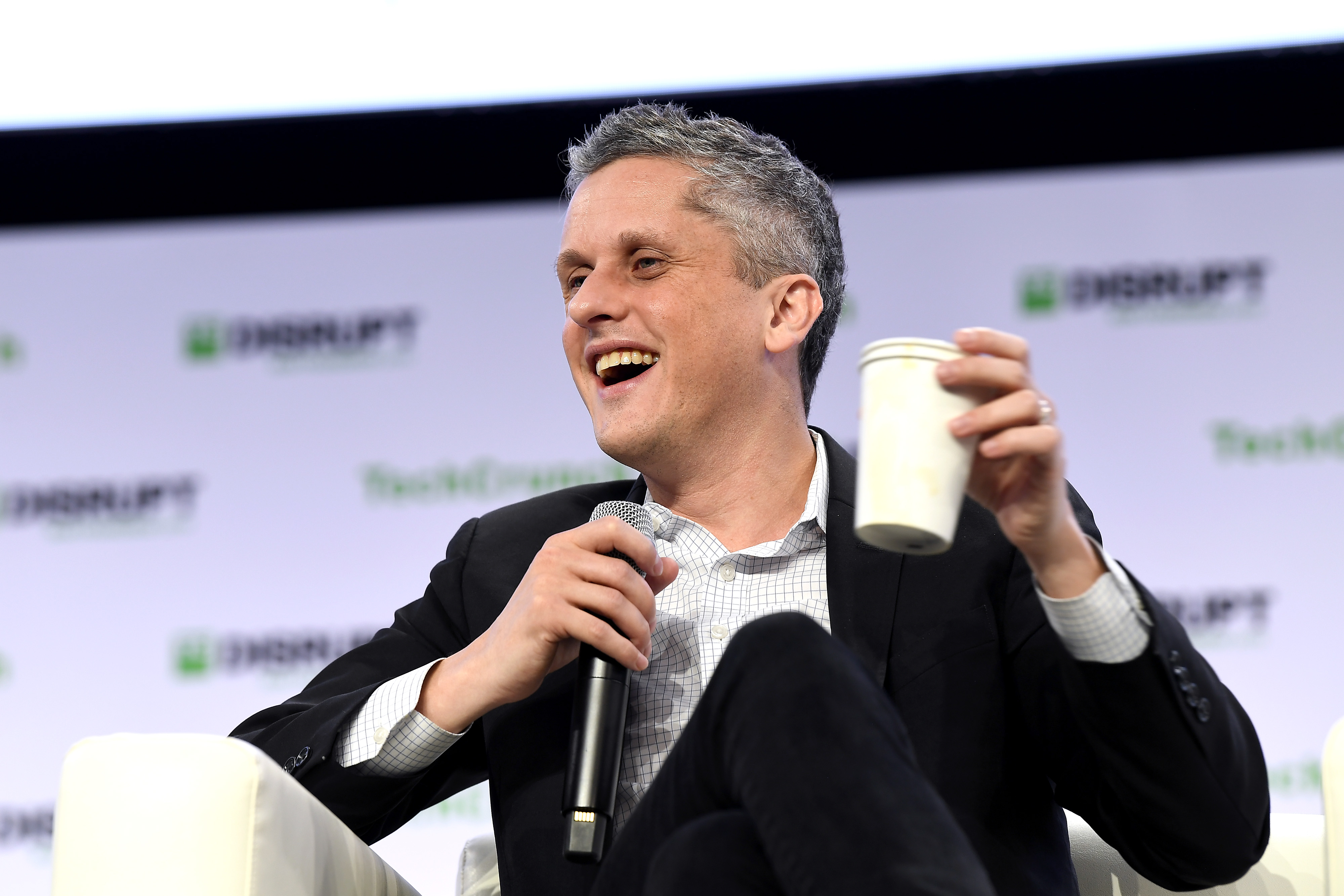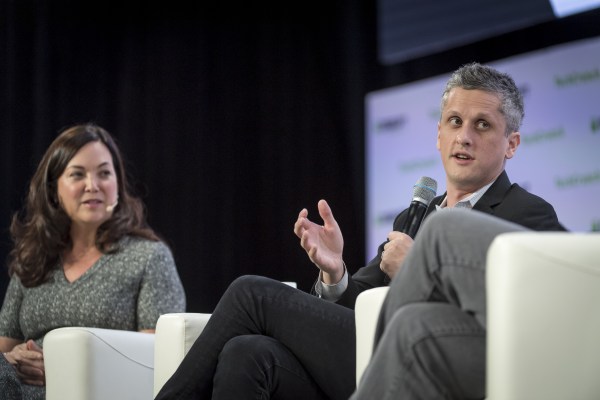Earlier this month at TechCrunch Disrupt San Francisco, we sat down with Box’s Aaron Levie and PagerDuty’s Jennifer Tejada to discuss their respective companies’ paths to an IPO, the general IPO landscape and the pros and cons of going public. With a lot of recent IPOs faltering and increased pressure on startup valuations, now is as good a time as ever to think about the role IPOs play in a company’s lifespan.
“I think it’s really important to think of the IPOs, the beginning, not the end,” said Tejada. “We all live in Silicon Valley and that can be a little bit of an echo chamber and you talk about exits all the time. The IPO is an entrance, right? It is part of the beginning of a long journey for a durable company that you want to build a legacy around. And so, it is a moment — it’s the start of you really sharing a narrative backed by financial data to help people understand your current business, the potential for your business, the market that you’re in, etc. And I think we tend to talk about it like it’s the be-all end-all.”
That’s something Levie definitely agrees with. “I think we have too much of a fixation on the IPO moment versus just building durable business models and how do they end up translating into valuations. The valuation that you get at an IPO is due to variety factors.”

SAN FRANCISCO, CALIFORNIA – OCTOBER 02: (L-R) PagerDuty CEO & Chairperson Jennifer Tejada, Box Co-Founder/Chairman & CEO Aaron Levie, and TechCrunch Writer Frederic Lardinois speak onstage during TechCrunch Disrupt San Francisco 2019 at Moscone Convention Center on October 02, 2019 in San Francisco, California. (Photo by Steve Jennings/Getty Images for TechCrunch)
It’s no secret that Box and PagerDuty had very different experiences as they got ready to go public. Box announced its S-1 only a few days before a major market crash back in 2014. PagerDuty, on the other hand, went public earlier this year, with solid financials and very little drama.
Tejada, in many ways, attributed that to the work she and her team did to get the company ready for this moment. “I get asked a lot by CEOs that are thinking about getting ready to go public, ‘you know, what was your playbook? How do you do this?’ And I think instead of thinking about what’s the playbook, you need to be intellectually honest about what your business looks like,” she said. In her view, CEOs need to focus on the leading indicators for their business — the ones they want the market to understand. But she also noted that the market needs to understand a company’s potential in the long run.
“You want to make sure that the market understands where you think the business can go and gets excited about it, but that they don’t over-rotate in their expectations, because dealing with really high expectations creates a lot of downstream difficulty.”

SAN FRANCISCO, CALIFORNIA – OCTOBER 02: PagerDuty CEO & Chairperson Jennifer Tejada speaks onstage during TechCrunch Disrupt San Francisco 2019 at Moscone Convention Center on October 02, 2019 in San Francisco, California. (Photo by Steve Jennings/Getty Images for TechCrunch)
Indeed, she argues that this year, we saw a number of companies that IPOed with healthy numbers and very high expectations in the first half of the year while the second half of the year is looking quite different, in part because of a political environment that’s created a volatile market. Tejada said executives who are considering going public must be “mentally ready for the externalities that you cannot control. Yet people yet people will expect you to be able to explain them.”
In this context, Levie also noted that a private company has more control over its valuation. “As a private company, you more or less control, to a high degree, your valuation because you get to choose when you take funding and thus what your valuation terms are at and you can choose not to take funding and thus not change your valuation.”
Tejada and Levie agreed that losing some control when you go public — something Box is currently experiencing this year as it deals with activist investor Starboard taking a 7.5 percent stake in the company — isn’t necessarily a bad thing. “The great thing about the public market — and I’m actually a really big fan of the public market — is reality and your value do do eventually — maybe over weeks or months or quarters — converge,” said Levie. “At times they there is a differential and you’re working to make sure that differential is as limited as possible.”

SAN FRANCISCO, CALIFORNIA – OCTOBER 02: Box Co-Founder/Chairman & CEO Aaron Levie speaks onstage during TechCrunch Disrupt San Francisco 2019 at Moscone Convention Center on October 02, 2019 in San Francisco, California. (Photo by Steve Jennings/Getty Images for TechCrunch)
He also argued that, for the most part, public investors and companies tend to be aligned around what they want a company to do. “I’ve found very few times ever where we’ve been misaligned with public investors,” he said. “We may have different views of timeframes around when they want to see certain results or execution. But in general, I think public investors have a pretty good understanding of least our side of the business models on cloud and SaaS.”
Tejada said that as PagerDuty sells to enterprises, it’s important for their customers to know that PagerDuty remains a viable businesses. “Going through the IPO process is a part of demonstrating your mettle and that you can be a long term partner with those customers,” she said.
Once you are public, the ups and downs of the market may rattle your employees, Tejada said, adding that companies need to build a culture of resilience to prepare for that. “I find myself reminding our teams and our employees about how unique the opportunity is that we’re in — that we’re in the probably top five to ten percent of SaaS companies of all time. That the chances of them finding a career opportunity similar somewhere else are less than the chance of being struck by lightning twice.”
More importantly, she said SaaS companies that have IPOed have created more value post-IPO than pre-IPO. “And yet our employees tend to think that the IPO is the exit. That after the IPO it’s all done, that I gotta go find another new hot, sexy startup.” To combat that, Tejada said fostering a culture where employees want to stay and not chase the next big thing and believe in the company’s mission should be a priority. (Perhaps easier said than done, given the number of opportunities many employees have after they’ve become financially independent thanks to first exit or IPO).
In the end, CEOs have to be honest with their employees, both said. “I always say to our team, there’s no business class on the rocket ship. It’s going to be uncomfortable. It’s going to be bumpy,” Tejada said. “You might feel like you’re gonna throw up every now and then. But it’s gonna be fun. It’s gonna be interesting. You’re gonna learn a ton.”
